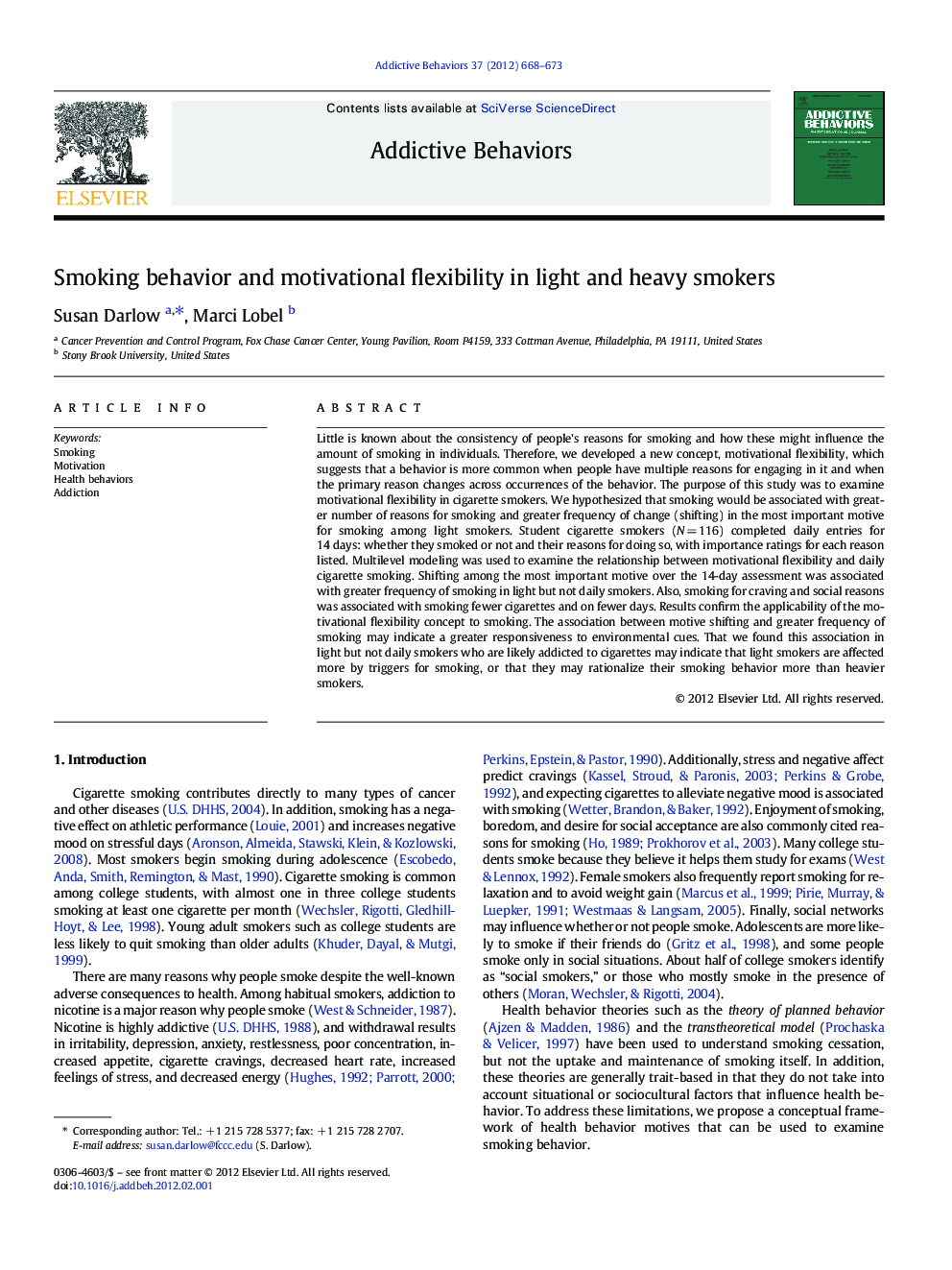| کد مقاله | کد نشریه | سال انتشار | مقاله انگلیسی | نسخه تمام متن |
|---|---|---|---|---|
| 899464 | 915384 | 2012 | 6 صفحه PDF | دانلود رایگان |

Little is known about the consistency of people's reasons for smoking and how these might influence the amount of smoking in individuals. Therefore, we developed a new concept, motivational flexibility, which suggests that a behavior is more common when people have multiple reasons for engaging in it and when the primary reason changes across occurrences of the behavior. The purpose of this study was to examine motivational flexibility in cigarette smokers. We hypothesized that smoking would be associated with greater number of reasons for smoking and greater frequency of change (shifting) in the most important motive for smoking among light smokers. Student cigarette smokers (N = 116) completed daily entries for 14 days: whether they smoked or not and their reasons for doing so, with importance ratings for each reason listed. Multilevel modeling was used to examine the relationship between motivational flexibility and daily cigarette smoking. Shifting among the most important motive over the 14-day assessment was associated with greater frequency of smoking in light but not daily smokers. Also, smoking for craving and social reasons was associated with smoking fewer cigarettes and on fewer days. Results confirm the applicability of the motivational flexibility concept to smoking. The association between motive shifting and greater frequency of smoking may indicate a greater responsiveness to environmental cues. That we found this association in light but not daily smokers who are likely addicted to cigarettes may indicate that light smokers are affected more by triggers for smoking, or that they may rationalize their smoking behavior more than heavier smokers.
► Motivational flexibility is a new concept developed to predict behavior frequency.
► Flexibility entails more motives and shifting of the primary motive(s) over time.
► Student smokers completed daily entries on smoking and motives for 14 days.
► Shifting was associated with smoking frequency in light but not daily smokers.
► Results confirm applicability of the motivational flexibility concept to smoking.
Journal: Addictive Behaviors - Volume 37, Issue 5, May 2012, Pages 668–673